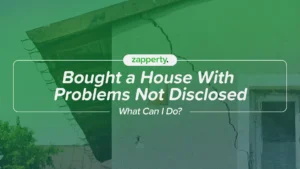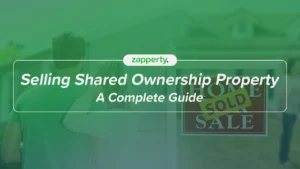Moving home can be expensive. You have solicitors’ fees, estate agents’ fees, moving costs, mortgage fees and so on. And one question that comes up regularly is: do you pay stamp duty when you sell a house?
The short answer is no, stamp duty isn’t something a seller has to pay. So, you can take solace in the fact that this isn’t something you need to account for when selling your home. However, there are other taxes and fees that sellers should be aware of, and if you plan to buy another property after selling, stamp duty will be something you have to pay.
This guide will walk you through everything you need to know about stamp duty when you sell your house, clear up common misconceptions and help you budget for your next move.
Who Actually Pays Stamp Duty?
In the UK, stamp duty land tax (SDLT) is a tax paid on any property purchases sold for above £125,000. That means the legal responsibility for paying stamp duty sits entirely with the buyer, not the seller.
For example, if you sell your home for £350,000, the buyer is the one who is responsible for paying the SDLT based on the purchase price. As a seller, you will not receive a stamp duty bill as part of your sale.
Some sellers mistakenly think they need to set aside funds for stamp duty when selling, but thankfully, this isn’t something you need to budget for. Even though the process involves solicitors, contracts and Land Registry fees, SDLT is only triggered by the act of buying. So, as the seller, you can cross that particular cost off your list.
Indirect Costs Sellers Might Face
Even though you don’t have to pay stamp duty when selling a house, several other expenses can affect your final profit. It’s important to understand what fees you pay when selling a house so you can budget accurately and avoid any last‑minute surprises.
Estate Agent Fees
The biggest cost for many sellers is estate agent fees, which are usually a percentage of your sale price and cover marketing, viewings and negotiations. This percentage depends on the agency you choose and will be outlined and agreed upon before you sign with them, but it typically falls somewhere between 0.9% and 3.6%.
Capital Gains Tax
If the property you’re selling isn’t your main residence, you might also face Capital Gains Tax (CGT) on any profit you’ve made since buying it. This is particularly relevant for second homes, buy‑to‑lets or inherited properties, so it’s worth checking your position before listing.
Early Repayment Charges
Another potential cost is early repayment charges on your mortgage. Some lenders impose these fees if you clear your mortgage within a fixed‑rate period or before a certain date. Always check your mortgage terms before you put your home on the market to avoid unexpected charges.
Common Misunderstandings
Sometimes, stamp duty can cause a few misunderstandings. For example, shared ownership schemes can make it unclear who pays what and when. But again, the stamp duty liability still lies with the buyer when they purchase their share.
If you’re selling part of a property, such as splitting land or selling a portion of a shared title, the buyer of that part will pay any applicable stamp duty. Similarly, whether your home is leasehold or freehold doesn’t change your position as the seller and you won’t pay SDLT.
These nuances can sometimes be confusing, but the principle remains the same: sellers do not pay stamp duty on a sale.
Are There Any Situations Where a Seller Might Have to Pay Stamp Duty?
There are a few uncommon scenarios that can feel like an exception. It’s important to understand these so you don’t get caught out.
In a standard property sale, a seller does not pay SDLT. However, in some very unique arrangements, such as specific shared ownership transactions or complex part‑exchange deals, you may need to pay SDLT. For example, if you’re selling a portion of a property and buying into a new shared ownership scheme at the same time, you might find yourself paying SDLT on the purchase element of that transaction, even though you’re also selling.
There can also be nuances with leasehold properties. If, as part of your sale, you agree to extend the lease before completion or transfer additional rights, you could trigger a stamp duty liability on that lease extension. These cases are incredibly rare but worth checking with your solicitor or conveyancer before proceeding.
For the vast majority of sellers, these situations won’t apply. But if your sale involves anything outside a straightforward freehold or leasehold transfer, you should speak to a solicitor for professional advice to make sure you understand any tax implications before signing contracts.
What About When Buying Another Property?
Many sellers are also buyers, so if you’re selling your current home to purchase your next one, this is where you’re likely going to pay stamp duty.
When you buy a new property, you’ll be required to pay stamp duty based on the purchase price and current government thresholds. This starts at properties that are sold for £125,000 or more. If you’re buying a second home before selling your first, you may pay a higher rate of SDLT (an additional 3% surcharge), though you can often reclaim this if you sell your original property within a set time frame.
For those moving home, the costs can add up, so you must factor stamp duty into your budget for the next purchase, even though you won’t pay it on the sale itself.
Tips for Home Sellers
Although you don’t pay stamp duty when selling, careful planning can help you keep other costs under control. Selling and buying a home is an incredibly expensive process, so you should look to save money where possible, especially if your budget is tight.
It’s a good idea to seek tax advice if you’re selling an investment property or second home, as CGT rules can be complex. Make sure you account for estate agent fees, solicitor fees and mortgage-related costs when setting your asking price.
Keeping your paperwork in order also helps speed up your sale. For a useful checklist, see our guide on organising home sale documents. And if you need to sell quickly to move on to your next purchase, you might consider a cash buyer service like Zapperty, which can help you avoid delays in a long property chain.
Sell Your Home With Confidence
As a seller, you don’t pay stamp duty in the UK. Instead, stamp duty is a buyer’s responsibility. That said, you should still plan for other costs such as agent fees and mortgage charges, and if you’re buying another property, you’ll need to budget for stamp duty on that purchase. Selling a home can be a complex process, but understanding what you do and don’t have to pay helps you plan and manage your budget. If you want to make your sale as smooth and fast as possible, consider speaking with a property expert or exploring Zapperty’s fast‑sale service to move on to your next chapter quickly and efficiently.
FAQs
Do sellers pay stamp duty in the UK?
No. In UK property transactions, stamp duty is paid by the buyer. Sellers have no stamp duty liability when they sell.
What stamp duty do you pay when selling a house?
None. There is no stamp duty on selling a house. However, you should budget for other costs like estate agent fees and potential capital gains tax.
Is stamp duty paid by the buyer or seller?
It is paid by the buyer. The buyer’s solicitor usually handles the calculation and payment of SDLT shortly after completion.




